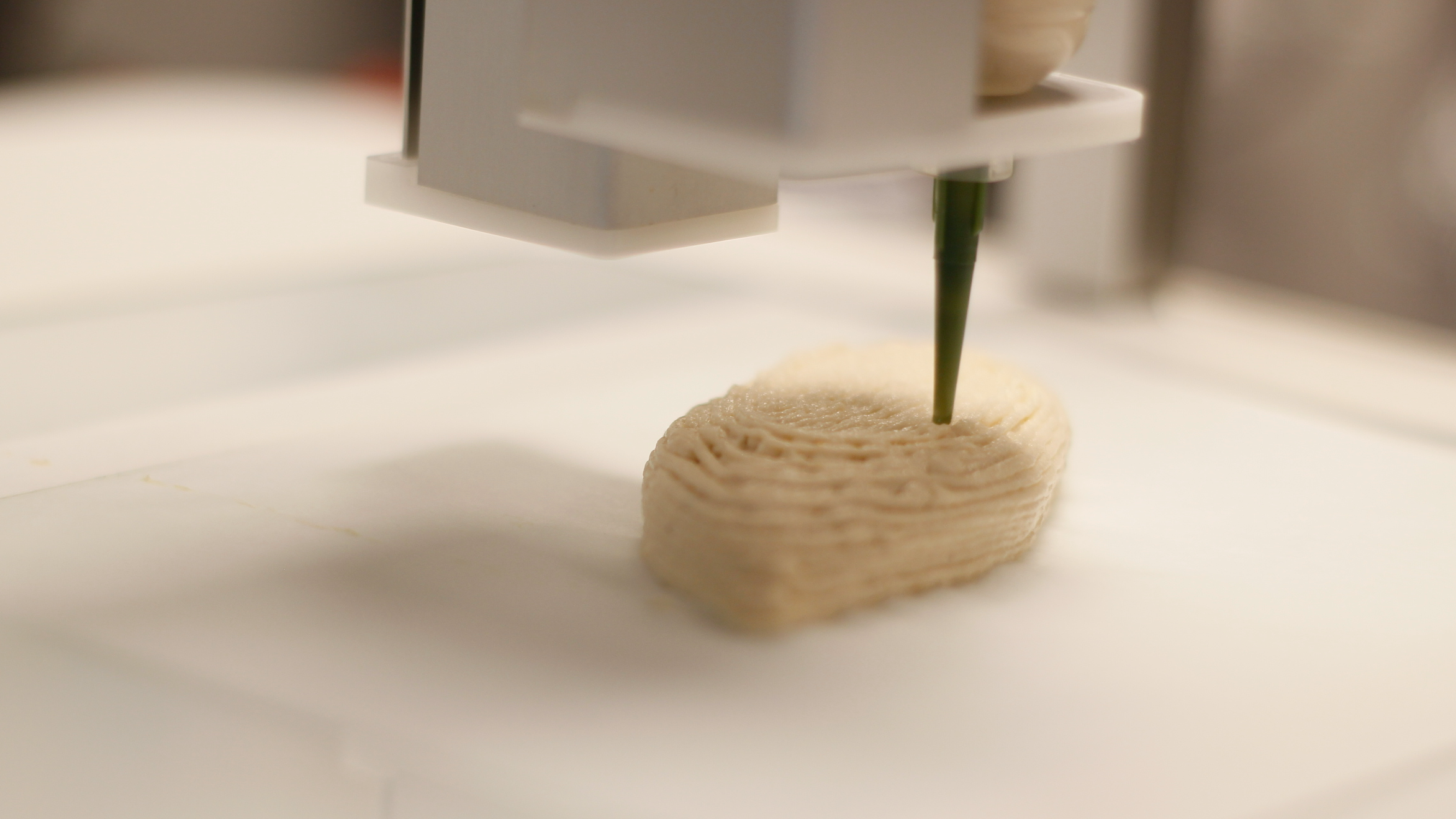Duration: 18 months
AFCiS is a circular food production system with capacity to produce food during space missions. Microalgae and filamentous fungi are grown in parallel using minimal inputs and maximizing the food outputs. The system is composed of three main modules: the fungi bioreactor, two algae photobioreactors and a food production module. Other smaller sub-modules such as heat exchangers, UV light, pumps, separator vessel and homogenization vessel are also key components of the system. During a production cycle, the algae is fed the CO2 and wastewater produced during the fungal fermentation, while the fungi is fed the homogenized algae as substrate. Oxygen is a byproduct from the algae. The final output of the system in a mycoprotein ingredient with neutral taste, that can be easily turned into food products resembling meat or fish in the food 3D print module. This system can actively produce food in cycles of 8 days, with enough food output for 4 crew members every 48h. After the 8 days cycle, the fungal reactors can be cleaned and restarted while the algae tanks can remain active for 30+ days. An initial prototype of the system has been validated in NASA's Deep Space Food Challenge, being one of the winners of the Phase 2. One of the advantages of this system compared to other competitors is the unique qualities of the fungi strain and final food product. Mycorena's strain is able to grow using only microalgae biomass and results in a fibrous and protein-rich product with meat-like texture. This type of food products are important for space missions, where texturized food is not commonly available to the crew. Another advantage of the system is that it can easily adapt to other by-products or side-streams generated during space travel. Mycorena's fungi strain is highly versatile and can adapt to starch (and other carbohydrate sources), protein, or oil rich substrates, so it can be used to generate food products from inputs generated from other food production processes.

